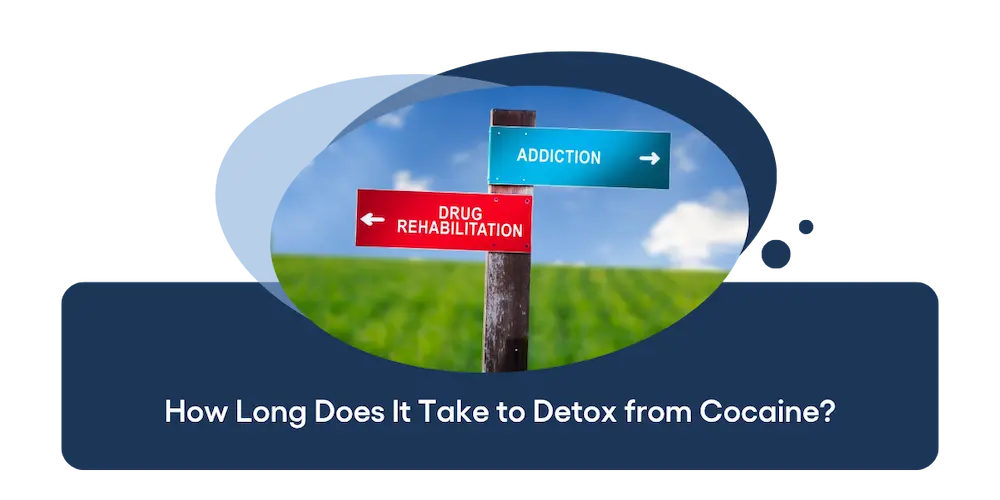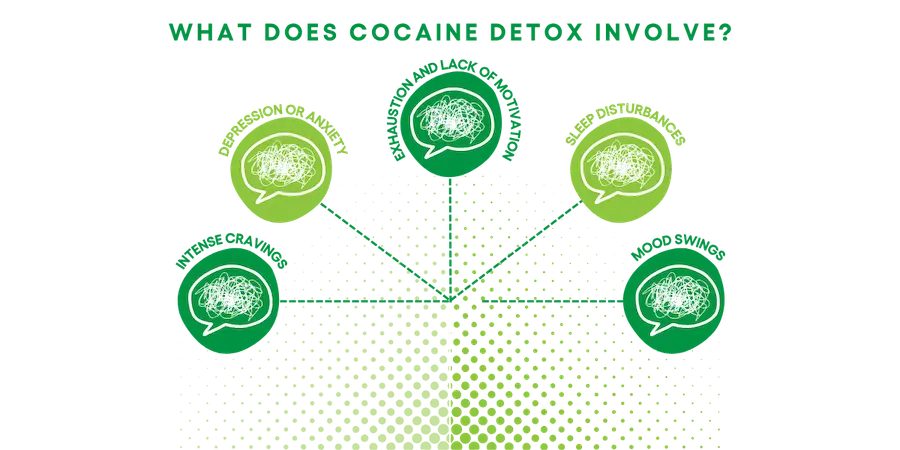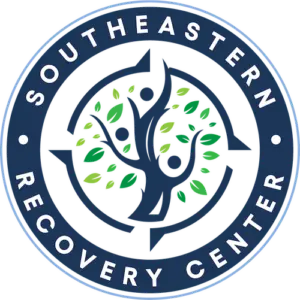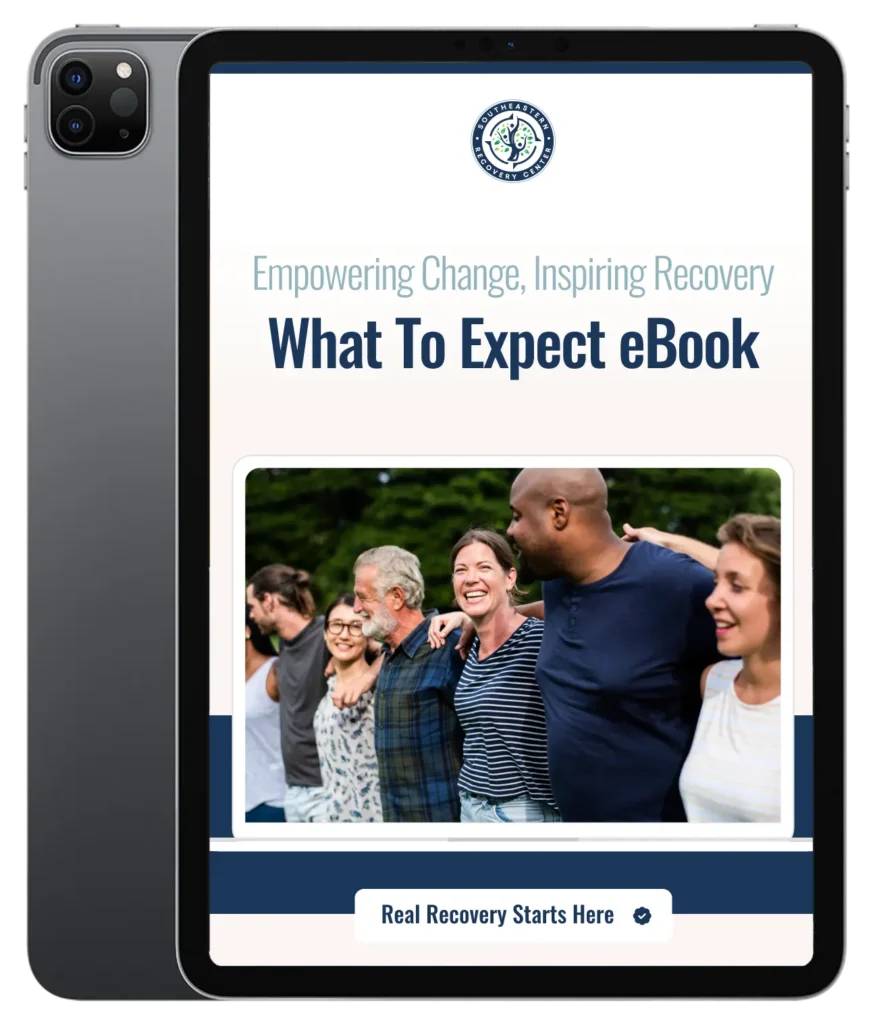Learn how long cocaine detox takes, what symptoms to expect, and how Southeastern Recovery Center in Charlotte, North Carolina, helps you safely overcome withdrawal.
Summary
Understanding the full timeline for cocaine detox is essential when preparing for recovery. The initial “crash” from cocaine withdrawal typically lasts up to 72 hours, while psychological cravings may persist for 10 weeks or longer. This is why lasting recovery requires more than detox. It takes structured care and long-term support.

At Southeastern Recovery Center in Charlotte, NC, we partner with supervised cocaine detox programs that focus on both safety and healing. Our compassionate clinical team helps clients manage the physical and emotional challenges of withdrawal while building a foundation for lasting sobriety across North Carolina.
What Happens to Your Body When You Stop Using Cocaine?
When someone stops using cocaine, the body begins a natural adjustment process. Cocaine causes a surge of dopamine, the brain’s “feel-good” chemical, followed by a severe drop once use stops. This results in fatigue, irritability, anxiety, and intense cravings. Physically, individuals may experience changes in sleep, appetite, and mood as the body starts to rebalance itself (National Institute on Drug Abuse, 2024).
What Does Cocaine Detox Involve?

Detox is the body’s way of clearing cocaine and adapting to its absence. While withdrawal is rarely life-threatening, it can cause severe psychological distress if not properly managed. Common symptoms include:
- Intense cravings
- Depression or anxiety
- Exhaustion and lack of motivation
- Sleep disturbances
- Mood swings
Because of these symptoms, medical supervision is strongly recommended. At Southeastern Recovery Center, clients in our Charlotte cocaine detox program receive continuous care to ensure safety and emotional stability.
According to SAMHSA, medically managed withdrawal significantly improves recovery outcomes and reduces relapse risk (SAMHSA, 2024).
Download Our Free Detox Guide Here
How Long Does Cocaine Stay in the Body?
Cocaine’s high is brief, lasting only 15–30 minutes when snorted, but its metabolites remain in the system for several days (MedlinePlus, 2024):
- Urine: Up to 4 days
- Blood: 1–2 days
- Hair: Up to 90 days
However, detox lasts longer than the presence of the drug in the bloodstream. Withdrawal symptoms and cravings may continue for weeks as the brain and body adjust to life without cocaine.
The Cocaine Detox Timeline
While the detox experience varies for each person, most individuals go through three general phases (NIH, 2023):
1. The Crash (First 24–72 Hours)
Energy drops sharply, leading to exhaustion, irritability, and depression. Sleep and appetite fluctuate, and cravings begin.
2. Acute Withdrawal (First 1–2 Weeks)
Depression, anxiety, and mood swings often intensify. This is when relapse risk is highest, making professional support crucial.
3. Extended Withdrawal (2 Weeks–3 Months)
Physical symptoms subside, but psychological cravings can persist for weeks or even months. This is known as post-acute withdrawal syndrome (PAWS).
How Long Does It Take for Your Brain to Recover from Cocaine Use?
The brain begins healing within weeks of quitting cocaine, but full dopamine system recovery can take several months. During this time, many people experience emotional flatness or a lack of pleasure in daily activities.
Research from the National Institutes of Health shows that consistent abstinence allows gradual normalization of dopamine transporter function over time.
At Southeastern Recovery Center, therapy and structured routines help restore healthy brain function and improve motivation during this phase.
Factors That Affect Detox Duration
Detox timelines vary from person to person. Influencing factors include:
- Frequency and duration of cocaine use
- Dosage and method (snorted, smoked, injected)
- Presence of co-occurring disorders
- Physical health, age, and metabolism
- Use of other substances
Because of these variables, a professional medical assessment is the best way to determine how long detox may last.
Is Cocaine Withdrawal More Mental or Physical?
While physical symptoms such as fatigue and appetite changes occur, cocaine withdrawal is primarily psychological. Depression, anxiety, and intense cravings often dominate the experience. That’s why emotional and mental health support is essential during detox.
The National Institute on Drug Abuse notes that behavioral and psychological withdrawal symptoms are key factors in relapse potential (NIDA, 2024).
What Is Medical Detox for Cocaine, and How Does It Work?
Medical detox provides 24/7 clinical supervision to help manage withdrawal safely. At Southeastern Recovery Center in Charlotte, our team uses evidence-based therapies, comfort medications (when appropriate), and continuous monitoring to ensure clients remain stable after completing the detox phase.
Detox sets the stage for recovery by preparing clients for inpatient or outpatient treatment.
Why Choose a Cocaine Detox Center in Charlotte, North Carolina?
Choosing a local detox center in Charlotte, NC allows you or your loved one to begin recovery close to home, surrounded by professional care and community support.
Southeastern Recovery Center stands apart through:
- Personalized detox plans tailored to each client’s history
- Dual-diagnosis support for mental health conditions
- Transition care into residential or outpatient programs
- North Carolina–based recovery network for ongoing support
Whether you live in Charlotte, Raleigh, Greensboro, or anywhere across North Carolina, we’re here to help you take the first step toward lasting recovery.
Why Professional Detox Is Critical
Attempting to detox from cocaine alone can be dangerous. The emotional lows and cravings can quickly lead to relapse or self-harm.
Medical detox provides safety, structure, and emotional support during this vulnerable time. At Southeastern Recovery Center, clients receive continuous monitoring, therapy, and aftercare planning to ensure a successful transition into long-term treatment after detox completion.
Frequently Asked Questions About Cocaine Detox
How long does it take to detox from cocaine?
Most people experience withdrawal symptoms for one to two weeks, though cravings and depression may last several months.
Is cocaine detox dangerous?
Physical risks are minimal, but the psychological symptoms, especially depression, can be severe. Professional supervision is strongly advised.
Can I detox from cocaine without going to rehab?
While it’s possible, detoxing without professional help greatly increases relapse risk. Rehab provides structure and therapeutic tools for sustained sobriety.
Does detox cure cocaine addiction?
No. Detox is the first step. Long-term recovery requires continued therapy and behavioral support.
How Can I Help a Loved One Detox from Cocaine Safely?
Supporting someone through detox requires patience and understanding. Encourage them to seek professional help rather than attempting detox at home. Offer emotional support, help with transportation to appointments, and stay involved in their recovery process.
Healing From Cocaine Addiction With Help
Cocaine detox can be challenging, but recovery is possible with the right support. At Southeastern Recovery Center in Charlotte, North Carolina, we provide a full continuum of care, from medical detox to residential and outpatient treatment.
Our mission is to help individuals safely overcome cocaine dependence and build a strong foundation for lifelong sobriety.
Call Southeastern Recovery Center today or reach out online to learn more about cocaine detox and addiction treatment programs in Charlotte and across North Carolina.
Resources
For readers seeking more information or support, the following resources and research studies provide valuable insights into the effects of detoxing from cocaine.





